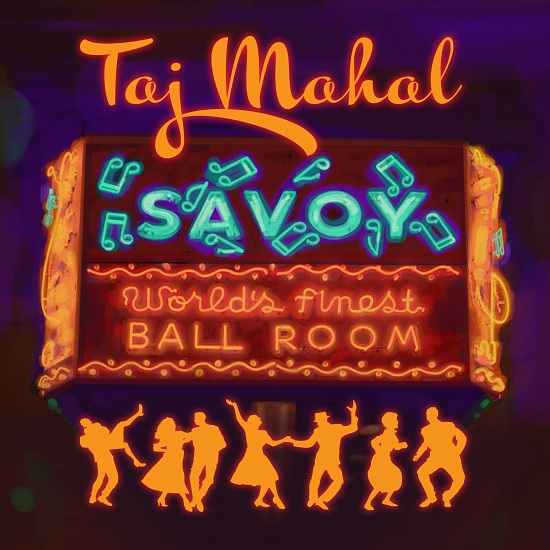
It’s not often I get a chance to review an album by a bona fide musical legend. However you look at it, Taj Mahal definitely fits that bill. He’s been around for ever, he’s influenced whole generations of blues players, collaborated with a host of well-respected players (Ry Cooder to name but one) and followed his own vision for over sixty years. During this time he’s also picked up four Grammy awards. Over the years, he’s pulled in various influences from a huge range of musical styles to spice up his own work, but never quite on this scale.
‘Savoy’ is a project that’s been simmering for almost twenty years between Taj and long-time collaborator and producer John Simon until they finally booked studio time for the project in 2022. ‘Savoy’ is Taj’s tribute to the music that his parents listened to in the swing era of the thirties and forties when they met at The Savoy Ballroom in Harlem. Taj sets the scene in the spoken intro to ‘Stompin’ at The Savoy’ leading in to a hefty fourteen interpretations of swing standards. The arrangements are more in a lounge jazz rather than a barnstorming big band style with all the players turning in relaxed, easy and underplayed performances. Even the solos (and there are a few of those, it is a jazz album after all) are beautifully laconic.
‘Savoy’ is a labour of love for Taj Mahal evoking his earliest memories of music that filled his childhood and started his odyssey through blues and its many associated styles. It’s pure nostalgia, and why not? Anyone who navigates the music business successfully for over sixty years is entitled to look over their shoulder now and again, particularly when it’s done with such subtlety and sophistication. In the best tradition of reinterpretations of classics, Taj Mahal puts his own stamp on the covers. ‘Summertime’ is switched up from ballad tempo to a swinging shuffle, while the album’s closing song, ‘One for My Baby (and One More for the Road)’ stretches out the smoky three AM vibe to a languorous eight minutes. And ‘Baby It’s Cold Outside’ is exactly as you would expect with a guest appearance from Maria Muldaur.
All of the elements of thirties swing are baked in to ‘Savoy’; there are classic horn arrangements recreating the big band sound on a smaller, more mellow, scale; solos from across the instrumental range, including flute and harmonica and even a bit of scat singing from Taj. If you want an affectionate tribute to thirties jazz played by superb musicians, then look no further.
‘Savoy’ is out now on Stony Plain Records (SPCD1470/SPLP1470).
Here’s a clip of ‘Summertime’:
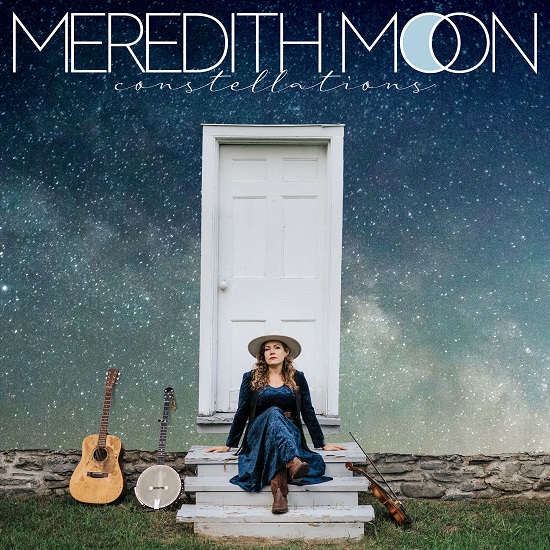
Where do we start with this one? It’s not quite a first album, it’s the first album that isn’t self-released and it’s a journey by road, by rail and by water taking us from the point where Meredith learned to play clawhammer banjo from YouTube videos to playing support gigs with a Canadian folk legend last year; this odyssey hasn’t been a straightforward one. She set off with her banjo, hitchhiking between venues with a folk-punk band and booking gigs using traditional music and punk networks across the Americas and Europe. It was an interesting way of honing her craft while providing material for some of the songs featured on ‘Constellations’.
As a self-taught player of traditional Appalachian music, you would expect to hear some traditional influences on the album and you wouldn’t be disappointed. There’s a banjo instrumental ‘Needlecase Medley’ (accompanied by podorhythmie – you can google that one) and the traditional ballad ‘Soldier’s Joy’. Its incongruously uptempo jaunty feel emphasises the pathos of a soldier fighting off the pain of battlefield wounds with opiates and alcohol.
Of the eight originals, unsurprisingly, there’s an instrumental piece, ‘Brokenwing Bird’, which showcases Meredith’s banjo skills. It’s a tour de force with superb playing throughout, style and tempo changes including a rallentando ending to represent the bird fading away. Of the remaining songs, there’s a strong emphasis on travelling; ‘Constellations’ is a hitchhiker’s song about seeing the night sky with a lover, while ‘That Town’ references the town of Wawa in Northern Ontario where hitchhikers often get stranded. ‘Lighthouse County’ and ‘Mark Twain’ are both nautical songs, the latter referencing the pseudonym of Samuel Clements and its original nautical meaning. There are also references to the constellations throughout the song as well. And while we’re on the subject of literary references, ‘Starcrossed’ has a couple of Shakespearean references including the obvious ‘Romeo and Juliet’ one.
‘Constellations’ is a fascinating piece of work. Setting aside the banjo virtuosity, the arrangements are minimal, allowing the songs to impress without too much embellishment. Meredith’s voice is understated throughout and the songs are interlinked by various themes and styles, creating a sense of unity across the album. It took a few listens to get under the skin of this understated piece of work, but it was definitely worthwhile. And what about that Canadian folk legend I mentioned? Meredith has consciously avoided playing on the fact that she’s the daughter of Gordon Lightfoot, preferring to make it on her own merits but the time has come now to open up on that one.
‘Constellations’ is out now in Europe on True North Records (TND807).
Here’s the official video for the song ‘Constellations’:
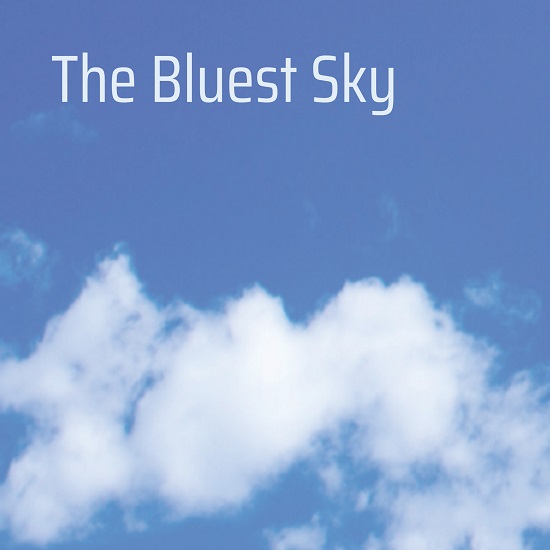
The Bluest Sky is the latest incarnation of Chuck Melchin, following his spell of four albums and two EPs as the cornerstone of celebrated Bean Pickers Union. The self-titled album is an attempt to move on from gentler introspective feel of his earlier work to creating “music that will make you want to drive your car faster”. With the nine songs featured here, he’s definitely succeeded; there’s only one slower, more contemplative, song on the album, but more about that later. The Laurel Canyon influence is strong on ‘The Bluest Sky’ with nods to Eagles, Neil Young and maybe even Evan Dando at times. The album was put together using the post-COVID method of musicians recording parts in their own studios before being mixed and mastered by Dave Westner; the results are organic and seamless.
The opening song, ‘Belly to the Bar’ sets the tone for the rest of the album with a country rock feel driven along by a pair of electric guitars under Melchin’s slightly fragile vocal as the story unfolds of a character trying to avoid being pulled into a rebound relationship. Most of the album’s songs are about personal situations although each has a slightly different twist. ‘The Girl It Took the Universe’ is a metaphysical look at the unseen forces moulding and pulling together two people over the aeons until the time is ripe for them to meet ending on a classic sixties sus4/sus2 progression, ‘Amy Jean’ is a straightforward karma and revenge song with a Southern rock feel that hints at the Allman Brothers’ Band’s ‘Jessica’ and ‘I Am James’ is a gentle country rock story of a man too shy to get himself noticed by a woman. ‘Drive Through Confessional’, with its mainly acoustic arrangement before a soaring electric guitar joins the mix, is a powerful piece of hometown nostalgia that turns around with the realisation that that reason for going back is the death of a loved one; it’s a powerful piece of work.
The two songs that step outside the personal may or may not be connected. The slow and melancholy ‘New Berlin’, its sadness punctuated by pedal steel fills, is a snapshot of a smalltown American town destroyed by a world economy that values only profit and scale; things can only get worse. There are a couple of references to classic American songwriters, John Fogerty’s ‘The Old Man Down the Road’ and Townes Van Zandt’s ‘Waiting Round to Die’ in the lyrics. It’s a powerful song with a storyline that could ultimately lead to the apocalyptic vision of ‘Bunkhouse’, the album’s penultimate song. The story of an unspecified rebellion and survival skills is played out over a Crazy Horse-style backing to maximum sinister effect.
Chuck Melchin and his collaborators have achieved the primary aim of making us want to drive faster while creating a bunch of varied and beautifully crafted songs. Job done.
‘The Bluest Sky’ is out now.
This is ‘Bunkhouse’:
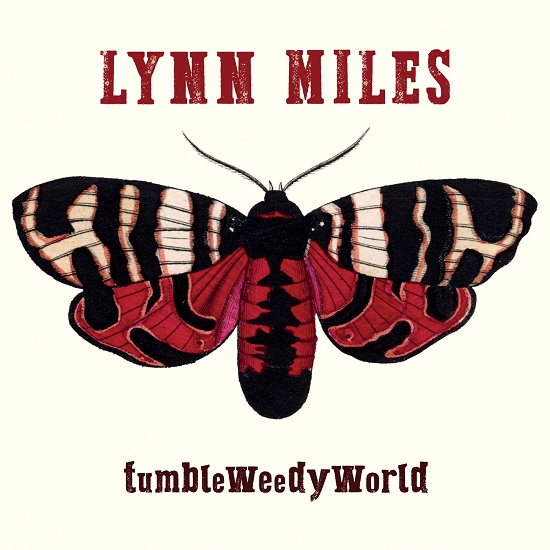
So what’s ‘TumbleWeedyWorld’ about then? Basically it’s about ten songs crafted by a superb songwriter, with musical arrangements that enhance the songs without submerging them and delivered in a beautifully clear fluty voice by Lynn Miles. But I suspect you’re expecting about another three hundred words before I put this one to bed.
With a back catalogue of fifteen albums, a collection of over nine hundred songs, a host of awards and covers by many artists, Lynn has deservedly been a fixture on the Canadian circuit for many years. ‘TumbleWeedyWorld’ is exactly the kind of album you would expect from someone with that pedigree.
The songs are so good that the album doesn’t need a huge production to make them work. The backbone of the arrangements is a traditional string band line-up of upright bass, fiddle, guitar and dobro. Add the exquisite harmonies and you have everything you need for an album of high lonesome-tinged country. In line with the minimalism of the arrangements, the album doesn’t feature a lot of solos, it’s much more about creating interesting textures. There are plenty of instrumental fills from the various players, but the only real solos are the laid-back banjo and mandolin efforts on ‘Hide Your Heart’ and the guitar solo on the rousing, uptempo ‘All Bitter Never Sweet’ which is a nod in the direction of Johnny Cash and June Carter’s ‘Jackson’. That particular couple also make an appearance earlier on the album.
It’s an album of sad songs which somehow manages to end on an optimistic note in the love song ‘Gold in the Middle’ with its effortless vocal and stripped-back arrangement emphasising the purity of the message. The remaining nine songs, with the exception of the relatively positive ‘Palomino’, are explorations of the ways that relationships can fail or the ways we can be hurt. If you want a couple of examples of Lynn’s mastery as a wordsmith, there are two songs that are absolutely packed with poetic imagery.
The opener, ‘Night Owl’, starts from the same situation as Oliver J Leiber’s Paula Abdul song ‘Opposites Attract’ before grim reality kicks in with the realisation that this relationship would never work. The heart-breaking ‘Johnny Without June’ explores the reality of being the one left behind after a long relationship is ended by death. It’s delivered in almost a Nashville style and, just in case you didn’t get the song’s references, it’s all made clear by two references to Johnny Cash songs in the song’s final four lines.
‘TumbleWeedyWorld’ is a polished piece of work from a great songwriter. Lynn Miles has taken a cold, hard look at the things that can go wrong for us in a screwed-up world and expressed them in words and music. However, she leaves room for optimism (or dodging the tumbleweeds) with ‘Palomino’ and the closing song ‘Gold in the Middle’. If you’re a fan of country in any of its many forms, you should give this gem of an album a listen.
‘TumbleWeedyWorld’ is out now on True North Records (TND802).
Here’s the lyric video for ‘Johnny Without June’:
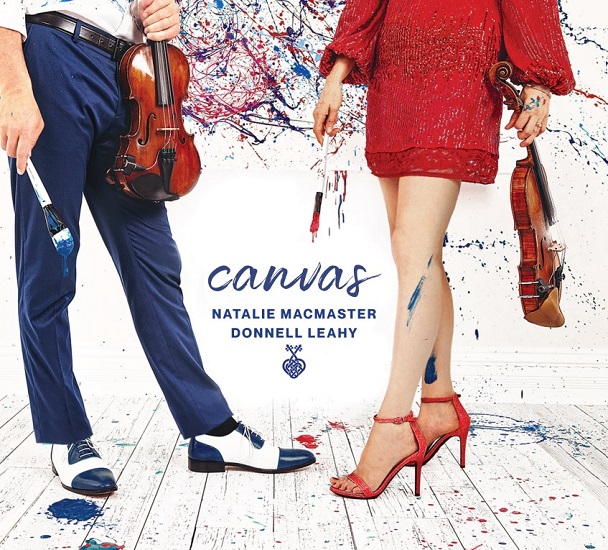
And still the pandemic albums keep coming; it took a while to adjust, but the adversity of 2020 and 2021 was a genuine mother of invention. The response of Natalie MacMaster and Donnell Leahy was to take the opportunity to go back to basics and start all over again with a tabula rasa, or a blank canvas, fusing their traditional musical roots with a huge variety of influences from across the globe and across the ages. All the way from Scotland in the nineteenth century to Spain and Latin America in the 2020s; that’s a broad and sometimes weird canvas.
The title track and exposition is a very short piece priming the canvas for the rest of the album. It’s a sketch that introduces atmospheric banjo and fiddle with some ethereal backing vocals and a bit of synth bass, hinting at some of the interesting combinations yet to come. And they are very interesting combinations.
Of the album’s thirteen pieces, two have lyrics (‘Woman of the House’ is sung by Rhiannon Giddens in Gaelic while ‘Wish You Were Near’ is sung by its author, Robyn Cunningham), three have backing vocals and the remaining eight are instrumentals ranging from the plaintive traditional James Scott Skinner tune ‘The Laird o’ Bemersyde’ to some absolutely bonkers (in the best possible way) fusions with other musical traditions. If you’re not admiring the quality of the musicianship, you’ll be smiling at the audacity of some of the fusion arrangements. The other James Scott Skinner to appear on the album, ‘The East Neuk of Fife’ begins its journey as a traditional fiddle piece before Natalie’s variations on the theme take over and the slap bass kicks in. That was definitely one of the smiley moments.
Here are some of my personal highlights. ‘So You Love’, featuring classical cellist Yo Yo Ma which starts with a solo piano, builds through a combination of Gaelic and Eastern European styles, string ensembles and a cello solo before speeding up into a huge string section with counterpoint fiddles and releasing the tension with a slow finish; it’s a symphony in miniature. ‘The Case of the Mysterious Squabbyquash’ is another kitchen sink production that gives a nod to the great Irish folk-rock fusion band, Horslips. The song opens with fairly traditional fiddle stylings and builds with rock bass and drums before a Hammond break leads into an outrageously over-the-top wah-wah guitar solo from the album’s producer Elmer Ferrer that sums up the album; you really don’t know what’s coming next. It could be step dancing, a horn section counterpoint fiddles.
‘Canvas’ is a truly remarkable piece of work. Just when you think Natalie and Donnell have exhausted the creative possibilities and they pull another trick out of the bag. You won’t get tired of listening to ‘Canvas’ any time soon and I think you’ll be grinning every time you listen to it.
‘Canvas’ is released in the UK on Friday April 7th.
Here’s the official video for ‘Colour Theory’ featuring Brian Finnegan:
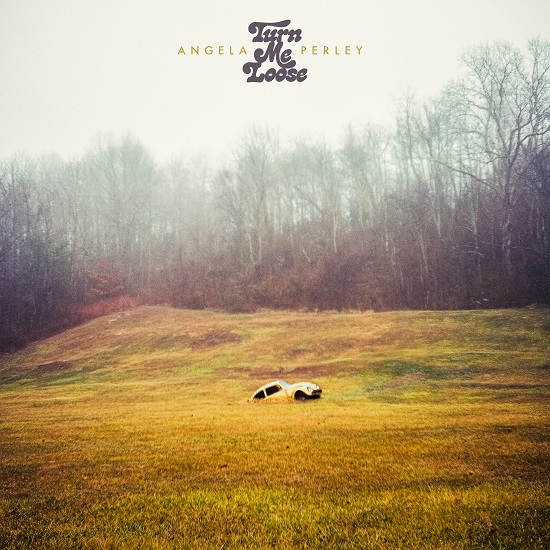
Angela Perley isn’t someone who wears her influences lightly; from sixties guitar rock through seventies country rock (Fleetwood Mac perhaps) to jangly eighties bands like The Bangles, The Go Gos and Katrina & The Waves. There’s also a touch of country/Americana thrown in, particularly on the penultimate song, ‘Holding On’, with its over-driven slide guitar and the pedal steel that adds just a tinge of blue to the entire album. Apart from the album’s final song, the solo piece ‘Wreck Me’, the songs are all fairly big productions with guitars facing off against each other, keys adding different textures and, of course, the sad machine pitching in with plaintive fills. To get the best from ‘Turn Me Loose’, you probably need to listen to it on the freeway (which sounds cool in a way that motorway never will) with the electric guitars playin’ way up loud.
From the opening song, ‘Plug Me In’, which channels the country rock of Eagles’ ‘Take It Easy’, adds a middle finger attitude and the urge to be moving which runs through the whole album with references to cars, planes, motorcycles, taxis, planes and even roller skates. Angela Perley’s desperate to be on the move; she needs to go somewhere, anywhere. Maybe it’s the inevitable reaction to a couple of years of movement restrictions after a long career as a touring musician – it’s certainly a theme that permeates the album.
‘Ripple’ is where Seventies glam-rock meets Lynyrd Skynyrd/Allman Brothers boogie; the riff is simple and the song’s driven along by powerhouse drumming as Angela sings about some of the things she wants to escape (including the vampires of the music business). Her influences are very clear musically and lyrically on the Sixties-inspired flower power-evoking ‘Near You’ with the reference to a “mellow fellow” and an almost English intonation in the lead vocal that harks back to the Sixties British invasion era.
‘Turn Me Loose’ is a collection of ten diverse songs pulled together by the combination of clean and over-driven guitars, Angela Perley’s musical influences and an itch to get out there and experience life again. You should listen to it on Route 66 in the summer, but you might have to make do with the M6 in spring. Either way, it’s going to sound great.
‘Turn Me Loose’ is available now from www.angelaperley.com.
Have a listen to the foot-stomping ‘Ripple’ here:
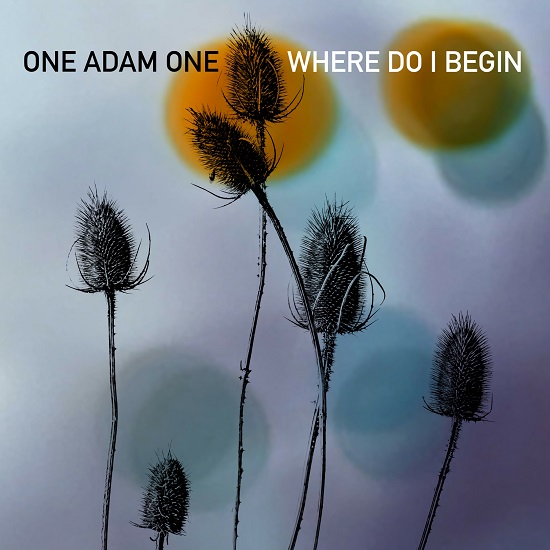
‘Where Do I Begin’ is a perfect example of the way digitisation and the internet has changed the music business. The conventional business wouldn’t know how to deal with it; five songs (OK, six if you count the no-swearing version of ‘Living Between the Lines’) is too much for an EP and not enough for an album (unless they’re eight-minute prog rock epics). Cutting out the major label bureaucracy means that if you have five great songs that hang together well, you can get it to the market fairly easily and call it a mini album. That’s exactly what Adam Reichmann and Todd Schnitzer have done with their debut as One Adam One.
The album’s almost a two-man show with Reichmann and Schnitzer singing and playing everything apart from some background vocals from Stephanie Stewart and a bit of baritone guitar from John Horton. Two things defining the album are the layers of instruments and vocals created by producer Todd Schnitzer and the fragile, vulnerable vocal of Adam Reichmann, at times on the edge of cracking completely, combining to create a beautiful melancholy feel across the five songs using all of the country/Americana palette (including pedal steel) and even a bit of harpsichord. The layering of tracks and use of reverb create an other-worldly feel that emphasises the melancholy style of the slow tempos and the vulnerability of the lead vocals.
Apart from the uptempo ‘Cold Murmurs’ with its driving tempo, lovely harmonies and maybe a hint of Tom Petty’s ‘Running Down a Dream’. It’s a song of renewal and optimism that offers a vivid contrast to the more downbeat songs that dominate the album. The opening song, the appropriately titled ‘Where Do I Begin’, builds from a gentle strummed acoustic intro to a full band arrangement with synths as the lyrics tell a story of hopelessness and helplessness after a broken relationship, while the closer, ‘Platte River’, is a slow, organ-driven, piece of nostalgia for a lost place, time and relationship.
‘Hollywood Ending’ has an arrangement that builds to a big finish as the lyrics explore the gulf between real life and the media presentation of life; it’s powerful stuff. Finally, ‘Living Between the Lines’ (my personal favourite) has an ominous reverbed guitar intro before Adam Reichmann’s vocal comes in the higher end of his range, almost cracking at times. The song tells the story of the unsung and unnoticed who do all of the things that we take for granted. The chorus is absolutely gorgeous.
‘Where Do I Begin’ is five great songs, arranged cleverly to enhance the melancholy content of the songs and, ultimately, the upbeat sense of rebirth in ‘Cold Murmurs’. It may only be five songs, but it creates a sense of sadness, anger and nostalgia before taking a more positive turn. The album is a lovely snapshot of the genesis of One Adam One; I’m hoping there’s a lot more to come.
‘Where Do I Begin’ is released on Die Trying Records in the UK on Friday March 31st.
Don’t just take my word for it, here’s the video for ‘Living Between the Lines’:

Here’s another project that’s been touched by the shadow of COVID. Lowri Evans and Sarah Zyborska met for the first time at the 2019 Festival Interceltique de Lorient after each had been gigging individually on the Welsh circuit for several years. It’s been a long flash-to-bang time for the project, but they finally got there and the end result is an album of rare beauty influenced by Americana, country, indie the opening song ‘Tell Me World is an uptempo nod in the direction of Belle & Sebastian’s ‘The Boy with The Arab Strap’) and Celtic folk. ‘Tell Me World’ is ten original songs written by Lowri and Sarah (eight together and one each individually). At the risk of sounding blindingly obvious, ‘Tell Me World’ is an album that sounds very Welsh (both Lowri and Sarah are bilingual and two of the songs have Welsh lyrics) and generally the songs have a female, or even feminist, perspective. The one obvious exception is ‘Workshop’, inspired by the contents of an old man’s garden shed, which serves as a metaphor for a place we can escape to indulge our creative urges.
The album’s a very delicate piece of work, ethereal, with a nod in the direction of bands like Clannad with layers of vocals and subtle, underplayed band arrangements from a group of musicians that includes Christians’ singer and keyboard player Henry Priestman. With a variety of musical stylings and lyrical themes that range from the intensely personal ‘She’s A Lover’ (about Lowri’s Mam) and ‘Genes’ (a clever play on words inspired by the birth of Sarah’s daughter) to the more socio-political ‘Waiting in the Background’ and ‘Crazy, Crazy Times’, there’s one constant; the beautiful vocals. Sarah and Lowri’s voices blend together perfectly whether it’s in simple homophonic harmonies or as a celestial choir.
The feminist perspective is obvious in the album’s second song, ‘Waiting in the Background’, which looks at the perceptions of women’s roles in various recent historical eras and highlights the fact that there’s still a long way to go. ‘Crazy, Crazy Times’ also has a socio-political slant, asking us to take responsibility for our own actions rather than just blaming it on a crazy world. At the other end of the scale, ‘She’s A Lover’ is a hymn of (mainly) praise to Lowri’s mam which has a Celtic country feel and features some delicate pedal steel. The album’s closing song’ ‘Atgofion’ has Welsh lyrics, which is fitting for a tale of an emigré’s memories of a Wales she will never see again.
The album’s a lovely mixture of styles, band arrangements, lyrical themes and even languages which is held together by great group of musicians and two stunningly good voices. It wraps itself around you like a warm blanket while giving you plenty to think about as well. It’s certainly the best debut I’ve heard in a long time.
‘Tell Me World’ is out on Friday March 24th on Shimi Records (SHIMICD0028).
Here’s a lockdown video of ‘Crazy, Crazy Times’:
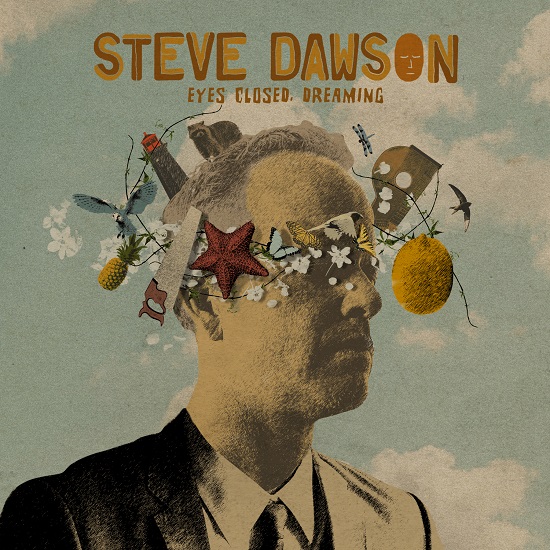
There are a couple of things you can expect from any Steve Dawson album: it’s going to be beautifully arranged and played, and definitely unpredictable. ‘Eyes Closed, Dreaming’ doesn’t disappoint on either count. It’s the third of Steve’s pandemic albums, with contributions pieced together remotely, a logical and necessary extension during lockdown of the studio practice of recording parts separately. It’s a tribute to Steve and all the superb musicians involved that the whole album feels like it was recorded by musicians playing in the same room. The arrangements on the album are trademark Steve Dawson with lots of layers of guitars and a whole raft of instruments that are unusual in any context but particularly in Americana arrangements. As ever, he makes it work, creating soundscapes that sound uncluttered while using multiple guitars, bass, drums, keyboards (including Moog and mellotron), strings, horns and even marxophone, vibraphone and pump organ.
Steve enjoys reworking other people’s songs with his own spin and there are four of those on the album, ‘Long Time to Get Old’ and ‘Guess Things Happen That Way’ get the swampy Southern rock treatment, while ‘Small Town Talk’ with its horns, nods in the direction of Muscle Shoals and ‘Let Him Go on Mama’ is a solo piece with Weissenborn backing that closes the album. There are also a couple of reworkings of traditional songs. These are all great versions that give Steve a chance to have a bit of fun and show his instrumental versatility, but the backbone of the album is the four songs co-written with Matt Patershuk.
Matt’s a hugely creative and poetic songwriter and the four co-writes are a good representation of the breadth of topics he likes to cover, from the nostalgic ‘Polaroid’, harking back to a pre-digital era to the wonders of nature expressed in ‘The Owl’. ‘Hemingway’ references, well, Ernest Hemingway, while ‘A Gift’ is about taking care of your family and showing pride in workmanship. Like all of Matt’s songs, they’re thought-provoking and occasionally spring a few surprises. As good as the rest of the album is, these four songs shine brightly.
Steve Dawson’s one of the many that accepted the pandemic lemons and made artisan lemonade by learning a completely new way of working and using the enforced break to create three superb albums. ‘Eyes Closed, Dreaming’ covers a range of styles from folk ballads through Americana to ragtime and Hawaiian music and Steve sounds convincing in all of them with his range of instruments, particularly the Weissenborn. And I almost forgot to mention that he has a great laid-back and soulful vocal style. You won’t get bored listening to this album.
‘’Eyes Closed, Dreaming’ is released on Black Hen Music (BHCD0098) on Friday March 24th.
Here’s a live studio video for ‘Small Town Talk’:
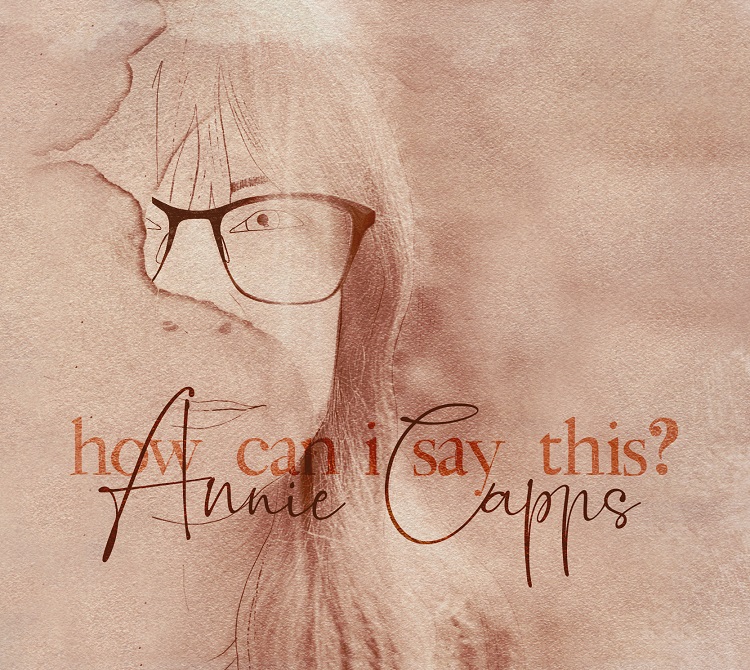
There are some song-by-song notes in the press kit for Annie Capps’ album which offer a few glimpses inside the songs and their meanings, but it only scratches the surface. There’s a lot you have to work out for yourself and that’s exactly how it should be; when an artist puts a lot of work and ability into creating an album, then it’s only fair that the listener should be willing to put in a bit of effort to get the maximum out of it.
The press release focusses on the personal nature of the album’s twelve songs, but there’s a wider agenda: “the personal is political”. The songs are personal and autobiographical, but there’s also a wide current of feminism running through with songs highlighting misogyny, coercive control and bullying, and the hypocrisy in organised religion on gender and original sin. If you need to be convinced about the album’s feminist credentials, every person involved in the project, from start to finish, is female; from the artists to all of the production team. ‘How Can I Say This?’ is very much about the female experience.
The message is there from the opening song; ‘My Eden’ with its folk arrangement and string section spelling out the institutional sexism of the Catholic church and the way in which girls are made to feel guilt from a very early age through the concept of original sin. The sequencing of the album takes the story from this early indoctrination into coercive parental control and distorted self-perception. Ultimately, the journey takes us through grief and towards the melancholic fiddle-led closer, ‘Yesterday’, with its recognition of all the little daily events that signpost the path away from grief and back into normal life.
The arrangements for the songs are basically Americana settings with string band instrumentation and sprinklings of piano and organ and loads of backing vocals and harmonies and the songs themselves are beautifully crafted, poetic and memorable. A classic example is the album’s midpoint ‘My Father’s House’, where the story is a perfectly conceived tale of a woman visiting the house of her violent alcoholic father before its demolition. It’s not just a great story, there’s true poetry there as well: “My father’s House had eggshells across every floor, that’s bad news for this clumsy child” – and that’s just one example, the album’s full of poetry as well as memorable stories.
‘How Can I Say This?’ deserves your attention not just because it’s a pioneering project but because it’s packed with great songs and great performances. It’s the first great album I’ve heard this year.
Here’s a link to ‘My Eden’:


